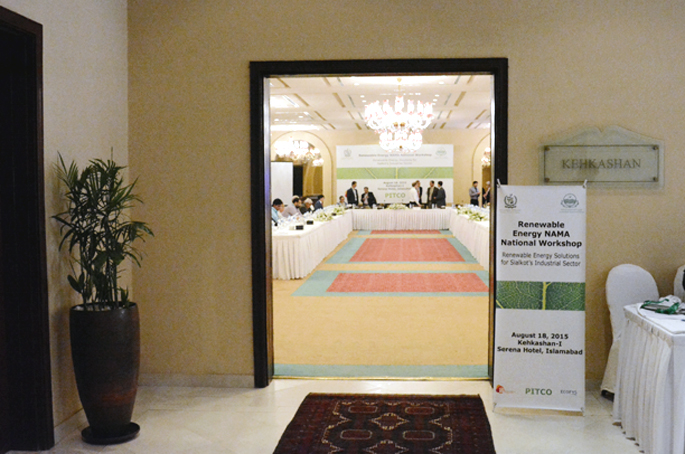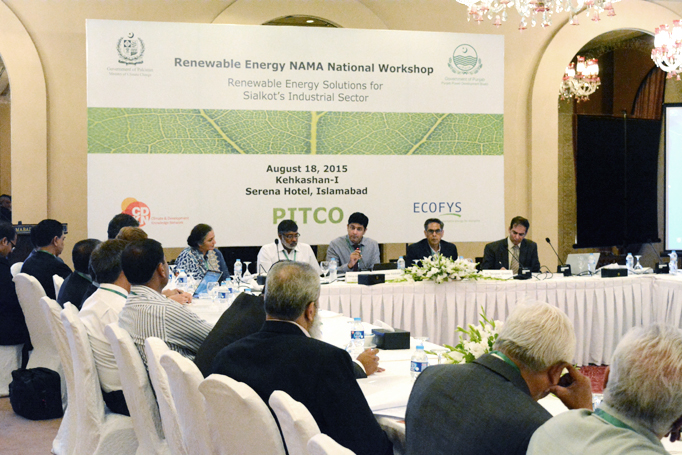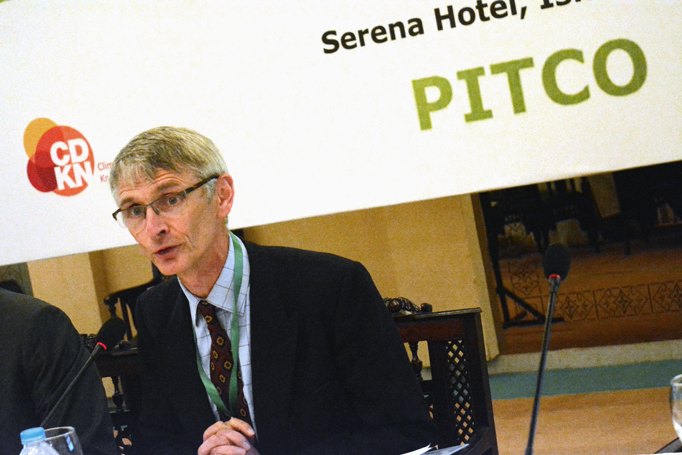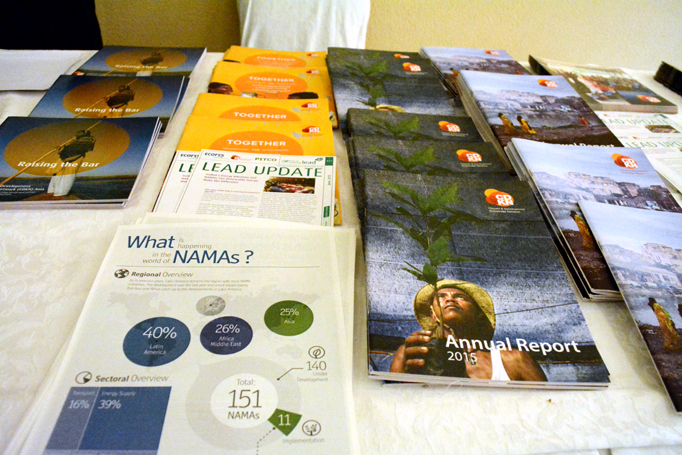Making NAMAs work - Renewable energy solutions for industry in Sialkot, Pakistan
Making NAMAs work - Renewable energy solutions for industry in Sialkot, Pakistan
The results of a ground-breaking six-month CDKN funded project in Pakistan, ‘Renewable Energy Solutions for Punjab’s Industrial Sector: Evaluating the NAMA Approach in Sialkot City’ were presented at a well attended event on 18th August 2015 in Islamabad, Pakistan (where 'NAMA' stands for 'Nationally Appropriate Mitigation Action' - more on the UNFCCC's website).
[caption id="attachment_53900" align="aligncenter" width="685"] The workshop was well attended by participants from industry, government departments, donor agencies and NGOs.[/caption]
The workshop was well attended by participants from industry, government departments, donor agencies and NGOs.[/caption]
The CDKN-funded project was implemented by Ecofys and PITCO at the request of the Ministry of Climate Change (MoCC) and the Punjab Power Development Board (PPDB) to explore solutions to the effects of energy crisis on small and medium size enterprises (SMEs) in one of Pakistan’s most emblematic industrial hubs.
The workshop highlighted the importance of NAMAs and their potential to provide sustainable and reliable energy in Punjab. Stakeholders working on NAMAs and renewable energy solutions in Pakistan shared different experiences on the development of alternative energy projects in Pakistan. The workshop was well attended by participants from industry, government departments, donor agencies and NGOs including chairmen and members of all the leading industrial sector associations from the Sialkot Chamber of Commerce, Deputy Secretary Ministry of Climate Change, CEO Alternate Energy Development Board, the German Embassy in Islamabad and the Chief Executive Officer CDKN.
[caption id="attachment_53901" align="aligncenter" width="682"] The workshop was successful in initiating a dialogue among stakeholders and raise awareness on the evolving concept of NAMA.[/caption]
The workshop was successful in initiating a dialogue among stakeholders and raise awareness on the evolving concept of NAMA.[/caption]
Sebastian Ernst, First Secretary, German Embassy, Islamabad spoke on Germany’s linkages with Pakistan in the energy sector since 1962. As a world leader in renewable energy, Germany is keen to help Pakistan overcome its energy dilemmas by encouraging similar policy initiatives. Mr Ernst’s opinions were endorsed by Sajjad Hyder Yaldram, Deputy Secretary Ministry of Climate Change, who said, “Turning to renewables will reduce the load on our national transmission grid, which cannot carry more than 15,000 megawatts of electricity”.
Amjad Ali Awan, the CEO of Alternate Energy Development Board spoke on Pakistan’s chequered attempts at combating climate and energy woes - reactive responses when the opposite should be the case. He further appraised the participants on the shift in AEDB’s approach and said that his organisation is more focused on designing a sectoral response for increased governmental ownership of renewable energy initiatives. He said that through stakeholder engagement and capacity building, AEDB will work towards addressing energy issues which are institutional in nature.
[caption id="attachment_53903" align="aligncenter" width="682"] Mr Sam Bickersteth, CEO of CDKN says that CDKN can help build bridges between the policymakers and the private sector for developing partnerships for implementation of NAMAs.[/caption]
Mr Sam Bickersteth, CEO of CDKN says that CDKN can help build bridges between the policymakers and the private sector for developing partnerships for implementation of NAMAs.[/caption]
Juan Pablo Osornio from Ecofys presented the findings of the feasibility study for implementation of renewable energy options for Sialkot’s Small, Medium Enterprises (SME) operating in the leather, sports and surgical instruments sectors. He identified that solar energy was a viable option but its uptake would require overcoming barriers such as lack of technological know how, insufficient technical support and lack of access to finance for the SME sector.
Sam Bickersteth, the Chief Executive Officer of CDKN said that the project intended to create an expressive demand and a market for renewable energy in Pakistan. CDKN can also help bu,ild bridges between policy-makers and the private sector for developing partnerships for implementation of NAMAs.
[caption id="attachment_53902" align="aligncenter" width="682"] The workshop highlighted the importance of NAMAs and their potential to provide sustainable and reliable energy in Punjab.[/caption]
The workshop highlighted the importance of NAMAs and their potential to provide sustainable and reliable energy in Punjab.[/caption]
The workshop proved successful in initiating a dialogue among stakeholders and raise awareness on the evolving concept of NAMAs and opportunities that are unfolding under the global climate finance regime.
Pictures above courtesy: Abbas Mushtaq, CDKN
Picture right (Football manufacturing industry, Sialkot, Pakistan): courtesy Chaudhry Khawar, flickr.com
